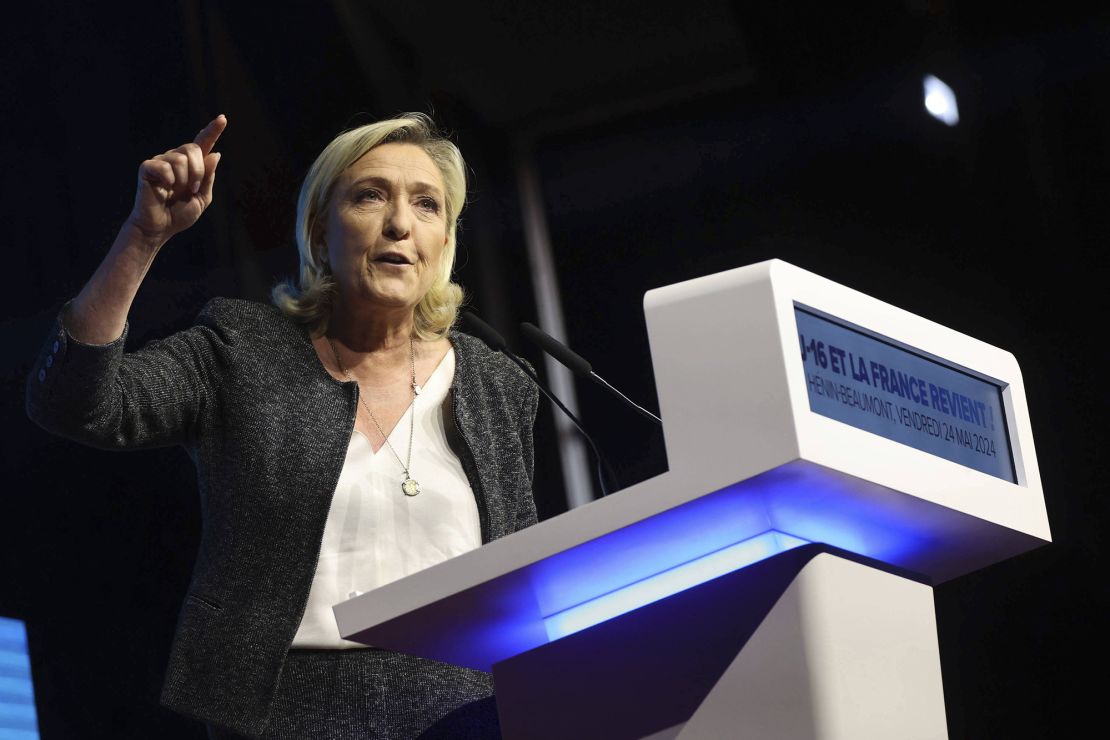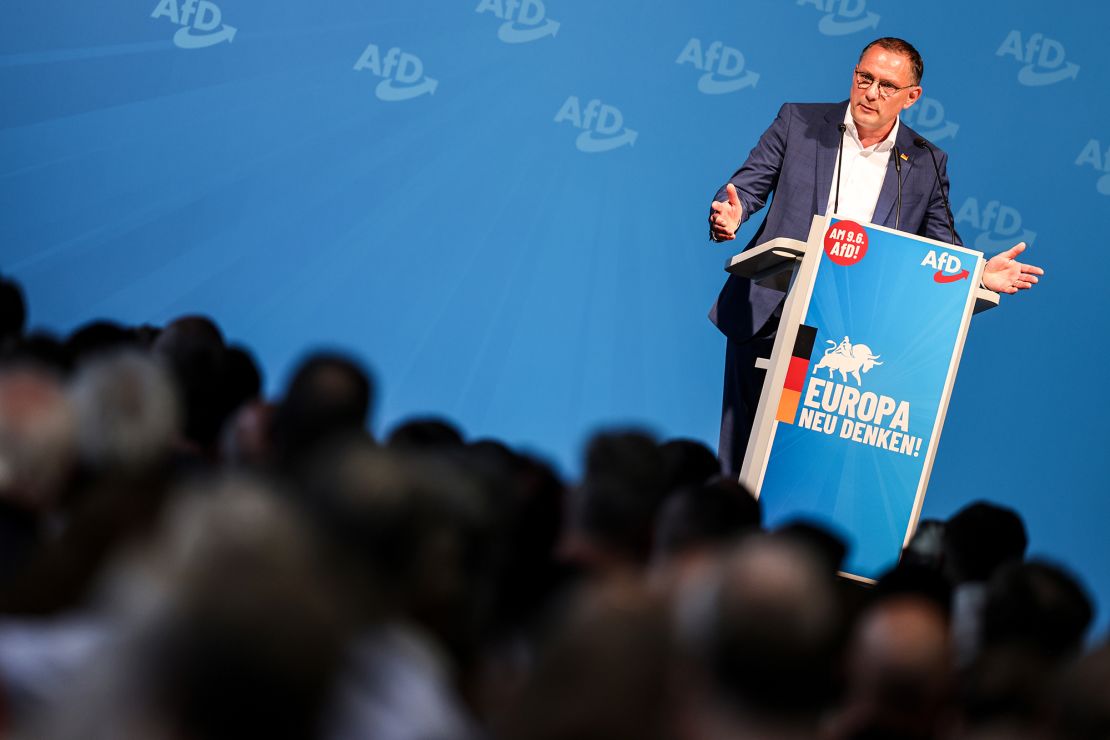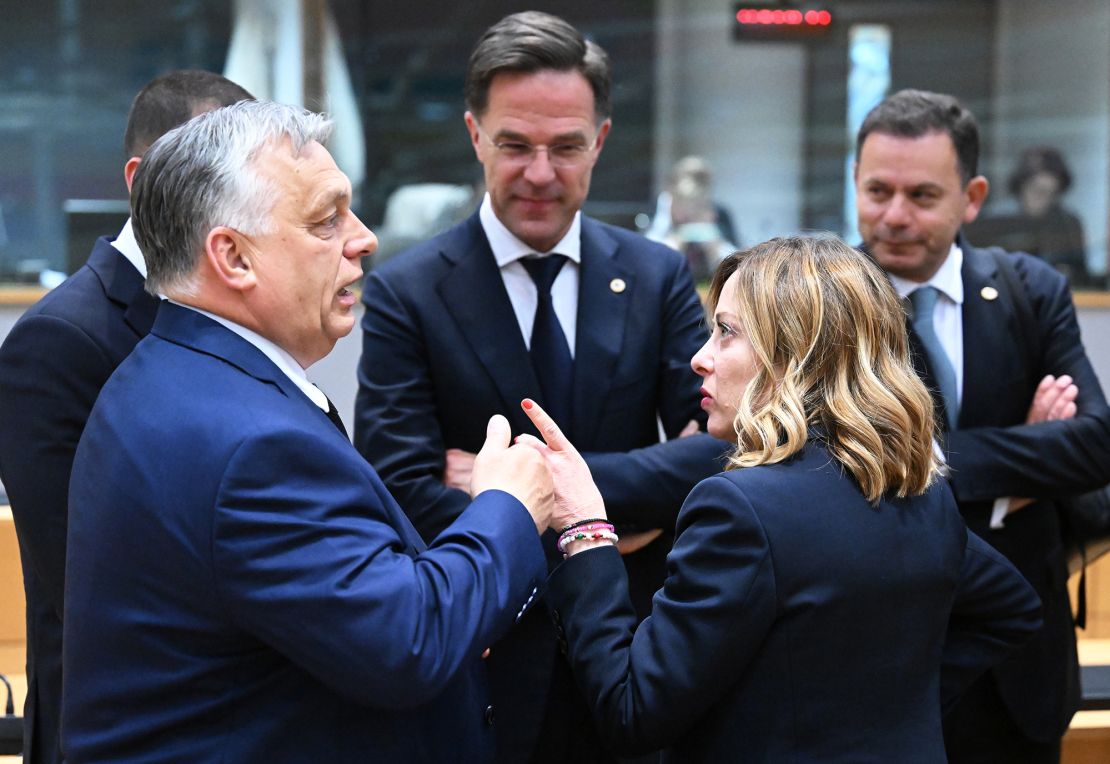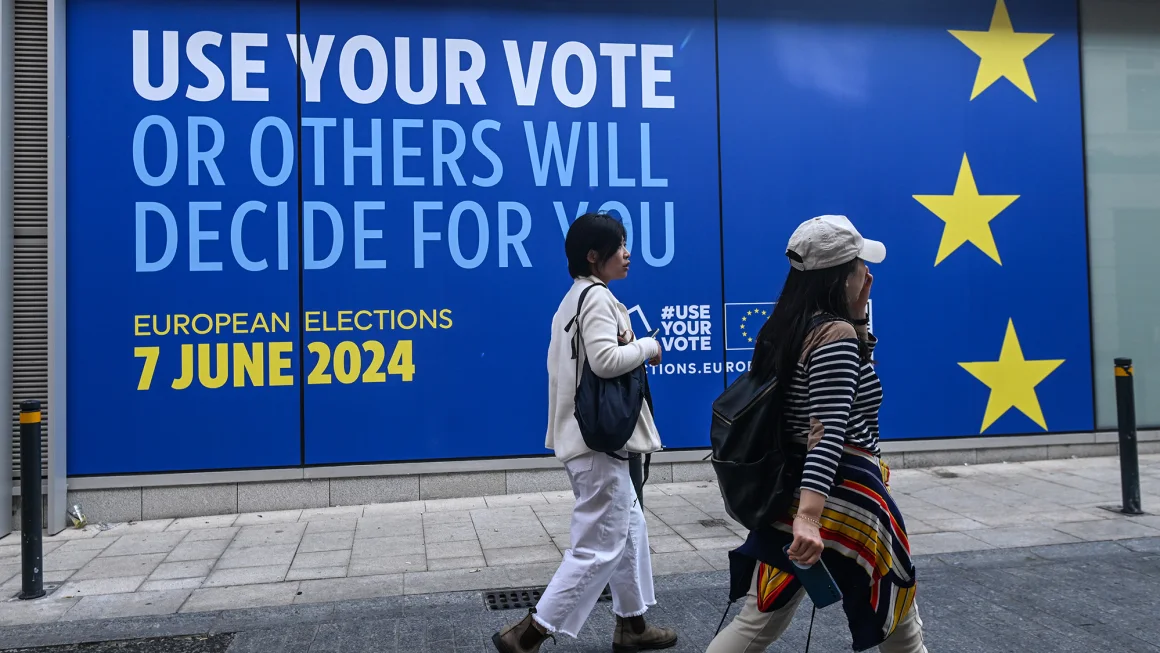The far-right could win hugely at European elections. It could be the defining factor in the future 5 years in European politics.
A staggering 373 million Europeans can vote in the elections to the European Parliament.Artur Widak/NurPhoto/Getty Images
This is an historic and crucial year for democracy around the world. About 70 countries – starting from Taiwan to United States to South Africa through Mexico and Taiwan are scheduled to be holding elections in 2024.
Following India’s massive and ongoing six-week election but the most significant vote in the number of voters is scheduled for next week, in which 373 million Europeans are able to go to the polls to elect 720 members to the upcoming European Parliament.
When the votes are counted from the 27 nations, it is generally expected to reveal an eminent shift to the right that could have significant consequences for the political direction for the European Union at a time that it is facing multiple crises, many these worldwide.
From the conflict in Ukraine to the struggle with mass migration, from the rising of China to the risk of climate change it’s difficult to imagine how a collection of disparate countries can possibly be united in their voices.
There is no doubt that the diversity of opinions among states that are members of the EU is not new. EU political system has been built on uneasy relations between countries and beliefs that reflect vastly different electorates.
The political center of the EU has definitely shifted towards the right over the last two decades, however.

Marine Le Pen, affiliated with the extreme right Identity and Democracy (ID) group, is a candidate to win the presidency in France by forming the support of her National Rally party in the coming five years.Francois Greuez/SIPA/AP
The European Parliament is the location that this is visible at an EU scale. The majority of legislators (known by the name of MEPs) are members of a political group within their country. After they are elected to into the European Parliament in the Belgian capital, Brussels they are part of loose, multi-national political groups which generally share similar in common political goals.
The groups then form looser coalitions. This usually will result in a major grouping of centrists who are from the center-left and center-right as well as liberals between.
The shift to the right of the center political in the alliance has occurred gradually. The year 1994 was the time when the primary socialist party S&D was the party with the highest number of MEPs. It was surpassed by the right-center European People’s Party (EPP).
The EPP can be best described as conservatives modeled after the model of the former German Angela Merkel, the German Chancellor Angela Merkel, has been the most powerful factor in EU politics since.
Although EPP EPP is able to form an orthodox centrist coalition that includes liberals and the left on an European level MEPs remain affixed to domestic issues that are happening within their countries.
It’s for instance, not an easy task for a conservative to collaborate with a liberal in an EU-wide policy that will help asylum seekers, if the those who live in the country are drawn to extreme populists who are anti-immigration. The more raucous the local screams and the higher the chance that they will lose their own seats in parliament, the more difficult cross-party political debate at the Brussels level is.
The anticipated flow of lawmakers in groups to the EPP’s right will definitely create a mess.

It has been trying to improve its image, recently removing Germany’s AfD following comments made by an influential MEP concerning the SS.Christoph Reichwein/picture alliance/Getty Images
The left-wing European Conservatives and Reformists (ECR) and the far-right Identity and Democracy (ID) groups are likely to be fourth and fifth with respect to seat numbers Their totals that could exceed of 140 in accordance with the Politico Poll of Polls which is hard to convince those in the EPP to overlook. The EPP is expected to gain 165 seats, compared and 143 seats for the Socialist S&D.
ECR along with ID have a common theme among European Parliament parties in that they house the majority of conservatives.
The ECR is a good example. It was established by the former British PM David Cameron who campaigned against Brexit. The current chair of the ECR is Italian Prime Minister Georgia Meloni, who garnered plenty of attention in the 2022 Italian election due to her stance on LGBTQ+ rights, promises to limit migration, and general anti-globalist sentiment.
But, since her election, she’s been perceived as significantly more moderate, and has been a supporter of numerous important EU initiatives, including the support for Ukraine. In addition, she has refused to allow an authoritarian Hungarian head Viktor Orban to join the ECR following his departure from the EPP.
Hungary is the pro-Russian EU vocal since the beginning of the conflict. It is unclear if this was deliberate on the part of Meloni and despite the fact that it is a protest against Orban has allowed her to work with the ECR more acceptable for those in the Brussels establishment, which includes EU Commission President Ursula von der Leyen.
ID also has tried to alter its image. It has recently exiledthe German extreme-right AfD organization from their ranks following the fact that one of the party’s most senior MEPs admitted to an Italian publication that he didn’t think the members from the SS the notorious Nazi paramilitary organization, as criminals.

Italian Prim Minister Giorgia Meloni has been more moderate at times in her office, rather than what was expected and has refused accepting the government of Hungary’s Viktor Orban into the ECR.Dursun Aydemir/Anadolu/Getty Images
There’s quite a wide variety of opinions, ranging between the moderate wing of ERC up to fringes within ID however, political trends and the desire to exert influence could result in odd ties, particularly in the ambiguous and dynamic political world European politics.
It’s likely that the EPP will be able to directly collaborate with ID in the near future however it doesn’t mean that they can’t be significant. We’ve seen repeatedly that it is possible to influence policies from outside the boundaries of. Imagine that the parties with ID begin putting politicians of the center under pressure in their respective countries. It is possible that the center adopting their policies like what happened previously in France and in the United Kingdom and Germany.
There are plenty of hot issues in Europe currently for the left to engage in. Climate change, migration borders, security at the border and military spending, the and the rule of law. All these have been hot topics in Europe’s politics for quite a while and will not go out of fashion anytime very soon. It is in the end the newly elected Parliament that reviews and approves the composition of the European Commission – the EU’s executive body.
It’s important to note that the support for Ukraine is believed to be secure at the moment as the pro-Kremlin parties are seeming to be very dispersed. However, almost all other issues will have to be dealt with in a way that is individualized should the numbers go in this way. The more MEPs chosen in the left of the EPP and the greater their influence will increase in the future.
Five years is an eternity in politics and that’s the length this Parliament will run. In the next five years, France will hold an election in which Marine Le Pen, who is a member of ID could be able to win by forming the ID National Rally party. Geert Wilders, who is also a member of ID is set to lead an administration in the Netherlands after gaining the most popular party in their elections in November. This means that the national politics of the member states could be shifted further to the left and this could alter the calculations in Brussels.
The European Parliament often to be a dull bureaucratic blob that is going through the motions. However, the EU is a growing geopolitical actor able to impose sanctions against Russian and Chinese political figures, offer funding to Ukraine and leverage its economic influence as the world’s biggest trading bloc for diplomatic relations. If its center of power shifts to the left the influence of its power will result in significant and possibly significant consequences for those who live outside of the boundaries of Europe.









